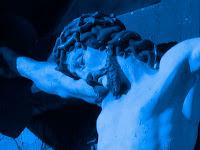
Time’s interview With Tom Wright (or N.T. Wright as he is published)
Ok read the interview above… Then come back.
Did you read it?? Good. Now we can talk.
I will pretend like you all are Christians for this entry, but please… for those of you who aren’t just see this as me talking mostly to myself. I want to hear everyones perspective.
For those of you with a background in Philosophy I’d be particularly interested in your perspective on how Plato has been influential on traditional church teaching on the after life. It’s something I’m just getting my feet wet with and would love to learn more.
My good friend Johannes brought this interview to my attention last week and I thought it could be a good item for Dialog.
I am not saying what I believe is what Tom belives, and I am not saying it is NOT what Tom believes.
To tell you the truth I don’t have a very good theology on Heaven… By that I mean I don’t really like to make Dogmatic statements about it.
I do however think Tom makes some valid points
the life after life after death
Tom says, “Jesus’ resurrection marks the beginning of a restoration that he will complete upon his return. Part of this will be the resurrection of all the dead, who will “awake,” be embodied and participate in the renewal.”
So there is a part of this life that is NOW. Heaven is at least in part active now. We are in the kingdom of heaven now. When we accept Christ we are “born again” into a new kingdom.
Question for you: Do we play a role in this restoration? Do we play a role in bringing it into completion?
Hellenism and The Tanakh
Tom Says, “The New Testament is deeply, deeply Jewish, and the Jews had for some time been intuiting a final, physical resurrection. They believed that the world of space and time and matter is messed up, but remains basically good, and God will eventually sort it out and put it right again. Belief in that goodness is absolutely essential to Christianity, both theologically and morally. But Greek-speaking Christians influenced by Plato saw our cosmos as shabby and misshapen and full of lies, and the idea was not to make it right, but to escape it and leave behind our material bodies. The church at its best has always come back toward the Hebrew view, but there have been times when the Greek view was very influential.”
I have often talked about our “flesh” being the sinful part of us, and how our spirits are good. Sometimes I think I might be wrong in talking in these terms. Is this an instance in which I am making Greek philosophy the basis for my theology?
Questions for you: Why do we have bodies? What is God’s plan for them? What is the fate of this physical world?
These are some concerns I had in reading it, plus more. I’d like to hear your comments and concerns to… let me know what you think!!












